Cambridge Judge Business School faculty offer their insights and opinions on what to expect in 2023 in areas ranging from entrepreneurship to climate change to disinformation.
How many people predicted at the start of 2022 that, by Halloween, Britain would be on its third prime minister of the year given that the UK had only 7 premiers in the previous 43 years? Predictions are of course a tricky business requiring courage and perhaps a thick skin, but that hasn’t stopped Cambridge Judge Business School faculty in the past – nor in 2023.
Here are some insights, and personal opinions, of 7 Cambridge Judge Business School faculty on the year ahead:
Trends in entrepreneurship
Monique Boddington, Management Practice Associate Professor

Entrepreneurship arises out of uncertainty, so about the only thing we can predict is that entrepreneurship will continue to flourish in 2023 given the huge amount of uncertainty around the world.
As we return to the office, the classroom and travel, and technology continues to push boundaries of what is possible, businesses that grew out of the pandemic may struggle in new conditions, or some trends boosted by the pandemic may be here to stay – be it the sharing economy, the gig economy or home delivery. In Cambridge, we are even seeing pint-sized robots on wheels delivering sandwiches and groceries.
Yet we also saw in the past year the result of some spectacular missteps in entrepreneurship: think of the collapse of cryptocurrency exchange FTX and the conviction of Theranos founder Elizabeth Holmes for defrauding investors in her blood-testing firm.
Therefore, in 2023 I would like to see more collaborative and thoughtful entrepreneurship to tackle some of the grand challenges of our age including social care, inequality and climate change. Given the tight job market and the “great resignation”, entrepreneurs wishing to attract talent will also need to differentiate themselves – both from established firms and other early-stage ventures.
Rather than going fast and breaking things, it is time this year for entrepreneurs to focus on sustainable growth and understanding the full impact of the business that they are building.
On permacrisis
Michael Kitson, Associate Professor of International Macroeconomics

In 2022, Collins Dictionary decided that the word of the year was “permacrisis”, which it defined as “an extended period of instability and insecurity, especially one resulting from a series of catastrophic events”. There are four major immediate and interrelated challenges facing the global economy, and how these challenges evolve in the next year will determine whether instability and insecurity at the end of 2023 will be even worse than the current permacrisis.
First, will China change its COVID-19 (coronavirus) policy? After its early success in containing COVID, China is now at a critical juncture as its “zero-COVID” policy has damaged the economy and led to civil unrest. But there are no easy options.
Second, will Russia continue its cruel war in Ukraine? It seems increasingly likely that Russia will not subjugate Ukraine, with the most likely outcome being a stalemate and a long war of attrition.
Third, will the world economy continue its recent path of deglobalisation? The trade war between China and the US is set to persist as both resort to protectionism and economic nationalism.
Fourth, as many economies grapple with high inflation will the problem become “baked-in” and persistent? Many policymakers are concerned about a “price-wage-cost” spiral with inflation feeding on itself.
Hopefully, the world will be in better place in a year’s time. A realistic assessment is that we may be in even a worse place and the world will be more unstable and convulsed by intensified geopolitical confrontations.
On influencing behaviour for the good
Lucia Reisch, El-Erian Professor of Behavioural Economics and Policy
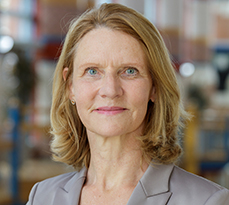
While the central theme of the COP27 climate-change summit in Egypt was the lack of progress in climate change mitigation and adaptation, I am still optimistic for 2023.
There was substantial progress and a surprising consensus in Egypt on global climate finance and World Bank and IMF reform. The energy crisis, while undoubtedly painful for many, is also turbocharging the Green Transition: the needed shift towards renewable energies; a boost for green tech and green innovation (such as zero carbon steel and cement); and tailwinds for ambitious national climate policies – even if, as with the Inflation Reduction Act in the US, they may not always be framed as such.
So much for the supply side. On the demand side, the behaviour side of change, the energy crisis is equally accelerating change. Even in a large industrial economy like Germany, almost one-third of energy has been saved over the summer months (compared to the average in prior years) after campaigns and promotions to reduce dependency on Russian gas.
People’s behaviour matters a lot, and demand-side instruments aiming for behavioural change of consumers and businesses are effective and widely accepted. They can make financial incentives and supportive regulation better targeted, while timely and socially relevant feedback and rewards can support households in saving energy and switching to renewables.
The behavioural card has long been undervalued: there is so much that can be done in 2023 by harnessing the behavioural potential in climate, energy, food and sustainability politics.
On greater sustainability, stability and a focus on EDI
Othman Cole, Management Practice Associate Professor (Finance)
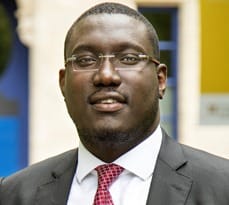
The past year has seen us being buffeted from one crisis to another, so what does 2023 hold in store for us? My optimistic view is that we will see improvements in 3 areas that are particularly close to my heart: a more sustainable world, economic stability, and greater action to ensure Equality, Diversity and Inclusion (EDI).
Despite the last-minute and diluted outcome at COP27, it nevertheless marked the one-year anniversary of the launch of the International Sustainability Standards Board (ISSB) under the auspices of the International Financial Reporting Standards (IFRS) Foundation. This has been a step-change in the convergence of numerous sustainability standards globally, therefore facilitating a single framework that can be widely adopted by organisations in adopting environmental, social and governance (ESG) standards going forward.
On the political and economic fronts, it has been turbulent in the UK and around the world. Signs such as easing levels of inflation, serious and “grown up” politics in the UK, and rejection of “falsehood” in the US hopefully point to a more stable political environment, which in turn will lead to improved economic stability. The main objective for the coming year should be to minimise the impact of the cost-of-living crisis on households and businesses.
A final wish I have for 2023 is that we see greater awareness of EDI and resulting actions taken by all stakeholders at individual, organisational and national levels.
On tech and AI at work
Virginia Leavell, Assistant Professor in Organisational Theory and Information Systems
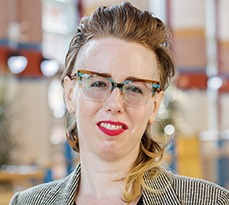
Many decades ago, historian David Noble got fed up with predictions about future technologies. The 1980s and 1990s were awash with projections of imminent, computer-driven industrial revolutions. For Noble, all the focus on what new technologies might bring tomorrow distracted from what it meant for workers today.
In the spirit of his call for a shift to “present tense technology”, I offer 2 predictions about technological conflicts at work and 2 about “artificial intelligence”. If, by definition, the future never arrives, then predictions are most meaningful for how we understand the future in the present.
The current UK government will purposely misrepresent disputes between workers and their employers over fair pay and working conditions as conflicts over “modernisation”.
People will realise 2 things about the chatbot ChatGPT (Chat Generative Pre-trained Transformer): that its output is formulaic, and that we were writing in much too formulaic a fashion ourselves anyway.
ChatGPT and DALL-E (which creates images from natural language) will not end art or replace every graphic design and writing job in 2023. Like all new technologies, their implications for work and society will emerge over time as people make choices about how to use the technology. The key word is “choice”.
Despite the best efforts of managers, we will discover no single best approach to the work-from-home puzzle. Managers will have to negotiate working conditions with their employees just as they always have.
On combating disinformation
Alan Jagolinzer, Professor of Financial Accounting
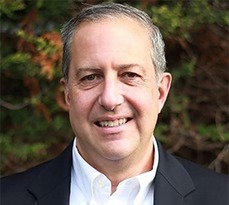
I see 2023 as a make-or-break year for societies to consider how to balance information freedom against accountability.
Malignant actors throughout history have leveraged disinformation (including intentionally false information to manipulate others) for financial fraud, political mischief-making and to support kinetic conflict. However, today’s tools allow for considerably more precise belief-system targeting and rapid viral dissemination, destabilising business and other societal infrastructure. I sense urgency for considering how to safeguard freedom of expression and data privacy whilst developing responsible frameworks – such as crowd-sourced editing and algorithmic fact-checking – to lessen the amplification of intentionally harmful information streams.
I also sense urgency to help inoculate vulnerable communities by communicating, for example, the strategies that disinformation profiteers use to engage their practice.
We are supporting these efforts with our 2023 Cambridge Disinformation Summit on 27-28 July, and the summit’s advance webinars and meetings, to enhance interdisciplinary research and public awareness. The summit brings together thought leaders from psychology, political science, journalism, financial reporting and other fields to analyse the societal impact of strategic disinformation and develop new approaches to mitigate the efficacy of disinformation. We are very excited that the keynote speaker for the dinner at King’s College is Frances Haugen, advocate for transparency in social media and Co-Founder of Beyond the Screen.
Disinformation is the accelerant for some acute climate, health, democracy, and business crises. I think better awareness and accountability in this new year can significantly help those institutions that disinformation has been designed to stress.
On the UK government’s response to the energy crisis
David Reiner, Professor of Technology Policy
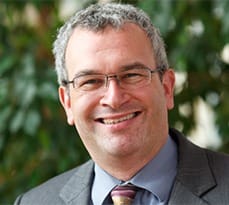
After warning about high energy prices at this time last year, I don’t take any solace in being correct given the terrible impact on many families. To be honest, predicting that 2022 would see dramatic price rises was simply relaying the inconvenient truth that high wholesale prices in autumn 2021 were inevitably being passed through to end consumers by spring 2022.
Apart from its scale and audacity, a Russian invasion of Ukraine was also hardly surprising since Russia had been carrying out aggressive manoeuvres for most of 2021. What was perhaps most demoralising was the response of the UK government given the long advance notice: it wasted many months with no effort to improve the dire UK building stock or to even undertake a modest campaign to engage the public. Instead, months of government chaos produced an overly generous and regressive support package spending 10s of billions trying to keep wholesale gas prices at bay but doing nothing to address the underlying problems.
There are lessons from across Europe and, belatedly, the current government has taken some steps in the right direction even if they remain clearly inadequate. The hope then, if not quite a prediction, is that consumers, energy companies, and maybe even the government might learn lessons from the current crisis. Even in a normal year, perhaps 10,000 “excess winter deaths” in the UK are attributable to cold homes – so here’s wishing for a mild winter this year and next.


